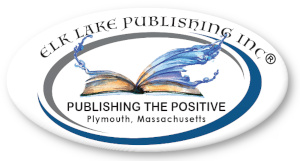Our publisher, Deb Haggerty, was recently interviewed for the American Christian Fiction Writers (ACFW) At Home Conference. We thought you’d be interested in her answers.
-
What are the top things you look for in a submission?
We look to see if they followed our guidelines completely. Then we look to see if the grammar, punctuation, and usage are correct. We check the synopsis—shorter is better than longer. We look at their proposed marketing efforts. We check to see what kind of a platform they have. If all those are satisfactory, we read the three chapters. If they show instead of tell and have an engaging story, we’ll probably go to contract.
-
What turns you off from a submission?
An author who doesn’t follow our guidelines or has a sloppily edited proposal will get rejected immediately. A proposal addressed to multiple companies at the same time will likely get turned down. Know what a publisher is looking for before you submit—and don’t submit something they say they are not looking for.
-
What aspects you look for when agreeing to work with an author? Submit a contract?
We’re looking for authors who are teachable and willing to work hard to get their novel or nonfiction piece as good as possible. If they’re not willing to work with us, we don’t want to work with them.
-
What is your greatest pet peeve?
My personal greatest pet peeve is authors who are lazy and use shortcuts instead of searching for the correct word or phrasing. They use words like “it” or “that” or “so” or “and then” or “then” to excess. And those who don’t know verb tenses and don’t check for errors before they send in a proposal peeve me as well.
-
What advice would you give to our novelists?
Write your story or nonfiction—the entire thing. Then go back and edit—and rewrite and rewrite and rewrite. Give your manuscript to a critique group and rewrite again. Learn the difference between telling and showing—between action and narrative—how to use dialog to fill in backstory and advance the action. Be humble, accept criticism as lessons for how to do better. Develop a thick skin and realize your editors are trying to make your work better. Under no circumstances hassle or abuse your editors. That will get a contract reverted faster than anything else.
-
How long can an author expect it to take to go from contract to release?
When we get a proposal, we will turn it around with a rejection or a contract offer in less than two weeks and sometimes, less than that. I’ve been known to offer a contract on the spot. If we reject a manuscript, we tell the author why and what they can do to improve. We’ll even tell them houses that might fit them better if they’re not for Elk Lake.
Once we receive an acceptable manuscript, we normally publish in around eight months. The time may be shorter or longer than that because we know life happens—for our authors as well as us. We call deadlines “life lines” for the same reason. -
Is there anything else you would like to share?
We work a lot with new authors who have not been published previously and who do not have a large platform. If an author sends in a pristine proposal with a good story or nonfiction topic, we’re very likely to offer a contract. We do not accept memoir as a rule, nor do we accept poetry, plays, cookbooks, or “one off” books. We’re interested in authors who write series or who have more than one nonfiction topic to write about. We are not presently accepting children’s books as our 2023 schedule is already full for those.
Elk Lake functions as both a ministry and a family, and we’re looking for authors who want to be a part of us for their careers.
Featured Blogs
From Deb’s Desk
What’s the deal with word counts? Have you ever pondered whether your work-in-progress is stretching too long or coming up short? Occasionally, we receive a submission that we must turn away because the manuscript doesn’t fit the expected length for its genre, being either excessively lengthy or disappointingly brief. Steve Laube recently shared a detailed…
Read MoreSpring News!
– Recent Awards – Steve Rogers’ book, A Year In The Room won FIRST PLACE in the Southern Christian Writers Conference Notable Book Awards. Good job, Steve! Karin Beery’s book, Finally Forever won Bronze for romance novels in the Feathered Quill Awards. Jonna Levan, God Meant You To Be You, won 1st place in 2 categories for the Royal Dragonfly Book Awards. Do you…
Read MoreLatest Releases for You!
New Year, New Books! Legend of the Lake by Sheri Schofield Can love overcome death? Abuse? A long-hidden secret? Lily Mains, pregnant and distraught over the death of her fiancé, Konnor, goes home. She faces a mother intent on marrying Lily off to a socially acceptable man Lily knows is abusive and pushing her…
Read MoreNew Year, New Books!
New Year, New Books! Sisters Ever After by Erin S. Quint Can God work in the hearts of two single parents so their daughters can be Sisters Ever After? Gianna Harper is living on borrowed time. Newly widowed, she’s struggling to hold things together at home and keep her business afloat while dealing with her late…
Read MoreMerry Books Make Merry Gifts!
Merry Books Make Merry Gifts! See below Elk Lake’s collection of Christmas-themed books (with links for purchase) that make great gifts for your loved ones this holiday. And by shopping “small,” you help a small business grow this season! Picture Books: Whose Manager is This?, Lisa Robbins & Tatiana Kochan …
Read More



